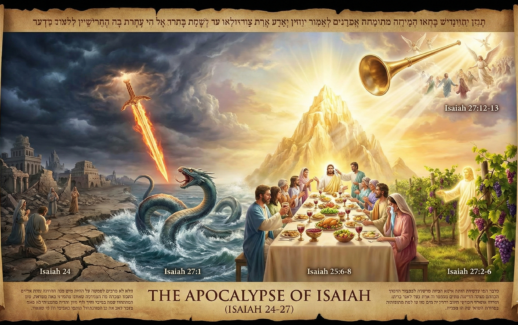The world around us is filled with conflict. From ancient rivalries between kings and nations to the personal disputes we face every day, history is a testament to humanity’s constant struggle for power and control. We see this in the Old Testament, in the tension between Moses and Pharaoh, the rivalry of David and Saul, and the prophetic clashes between Elijah and King Ahab. But these are only symptoms of a much deeper, more profound conflict.
When Jesus stepped onto the scene, He exposed the true nature of this age-old battle: a cosmic power struggle between God and Satan, a conflict fought not over land or treasure, but for the human soul. This is the ultimate war we all find ourselves in, whether we realize it or not.
In Luke 11:14-23, Jesus casts out a mute demon, astonishing the crowds. But while some are amazed, others are skeptical. Some accuse Him of casting out demons by the power of Beelzebul, the ruler of demons, while others demand a sign from heaven to prove His authority. Jesus responds to their accusations with three simple, irrefutable arguments.
First, He points out the sheer illogicality of their claim. “Every kingdom divided against itself is laid waste,” He says. “If Satan also has been divided against himself, how will his kingdom stand?” (Luke 11:17-18). It makes no sense for Satan to fight against himself; He would be working to destroy his own dominion.
Second, Jesus turns the tables on them, showing how their accusation incriminates themselves. “If by Beelzebul I cast out the demons, by whom do your sons cast them out?” (Luke 11:19). This was a challenge to their hypocrisy. If they believed Jesus was using demonic power, then how could they explain their own exorcists? Their judgment of Him was a judgment against themselves.
Finally, Jesus reveals the truth behind His power. “If I cast out the demons by the finger of God, then the kingdom of God has come upon you” (Luke 11:20). He then illustrates this with a powerful parable: “When a strong man, fully armed, guards his own house, his possessions are secure. But when someone stronger than he attacks him and overpowers him, that man takes away his armor on which he had relied and distributes his plunder” (Luke 11:21-22).
This passage reveals a fundamental truth: Satan is a “strong man” who holds humanity captive. But Jesus is the one “stronger than he,” who has come to overpower Satan, take away his armor, and set the captives free.
The Real Battle
The struggles we face today are often not what they seem. As Ephesians 6:12 reminds us, our “struggle is not against flesh and blood, but against the rulers, against the powers, against the world forces of this darkness, against the spiritual forces of wickedness in the heavenly places.”
From the very beginning, Satan, a fallen angel, sought to usurp God’s authority. Stripped of his power in heaven, he now seeks to exert his influence on earth, blinding the minds of unbelievers so they “will not see the light of the gospel” (2 Corinthians 4:4). His schemes are simple yet devastating: to deceive, to enslave, and to destroy.
But Jesus’s ministry and eventual sacrifice changed everything. He is the ultimate “stronger man” who came to “destroy the works of the devil” (1 John 3:8). Through His death and resurrection, He disarmed Satan, taking away his power over sin and death (Hebrews 2:14). Jesus didn’t just expose the power struggle; He won it.
There Is No Neutral Ground
With the lines so clearly drawn, Jesus makes a final, decisive statement: “The one who is not with Me is against Me; and the one who does not gather with Me scatters” (Luke 11:23).
In this cosmic conflict, there is no middle ground. You can’t be an impartial observer. You are either on the side of Christ or on the side of the enemy. To “gather” with Christ means to bring souls to God, to build up His kingdom. To “scatter” is to help the enemy tear down and destroy lives. Even an inactive or “neutral” position is, by default, a form of scattering.
Jesus uses a stark illustration to emphasize this point. He speaks of a person delivered from an evil spirit. If that person’s life remains empty and does not invite God in, the spirit will return with seven others more evil than itself, leaving the person’s condition worse than before (Luke 11:24-26). Freedom from sin is not enough; we must also be filled with the presence of God.
Winning the Fight
So how do we win this battle? By aligning ourselves with the winning side—God’s side.
First, we must be identified with Christ through baptism, symbolizing our death to sin and new life in Him (Romans 6:3-4). We are no longer slaves to sin but alive to God. This changes everything.
Second, we must actively participate in this struggle by putting on the “full armor of God” (Ephesians 6:11). Our fight is not merely for power but for authority, an authority that is rightfully ours in Christ. As believers, we are raised up and seated with Him in the heavenly places (Ephesians 2:6), and we have a role to play in making God’s multifaceted wisdom known to the spiritual rulers and authorities (Ephesians 3:10-11).
This isn’t a struggle for power we don’t have; it’s a struggle to exercise the authority that is already ours in Jesus Christ. We are not just holding on; we are taking back what was lost. We are no longer captives but victors, standing firm on the side of the one who is stronger, the one who has already won the war.


